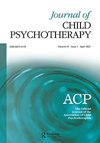One smart object – three layers of smartphone use in discovering an encapsulated patient’s inner world*
IF 0.8
Q4 PSYCHOLOGY, CLINICAL
引用次数: 0
Abstract
ABSTRACT This paper explores the use of a smartphone within a therapy. It describes its use as a screen object in the service of survival-oriented infantile omnipotence, towards its use as a bridge that facilitated the structuring of internal space and the emergence of nascent capacities for relatedness and introspection. Clinical material from a ten year-long therapy with an adopted girl illustrates the presence of the smartphone on three layers of the therapeutic relationship. First, on a sensory level, the smartphone was used as an almost autistic screening object, but also as an auditory-visual envelope where therapist and patient could be immersed together. Second, on the level of patient-therapist communication and transference relations, the use of the smartphone revived infantile trauma involving the internalisation of a parental gaze that established a distorted internal and external gaze experience, which I termed ‘psychic cross-eyes’. Third, the smartphone served as a ‘third’ object that helped establish our shared observation of reality, and of the patient’s own psyche. By dwelling together, and developing a private language of ‘being-with’ ‘inside’ the phone, while gradually interpreting primitive anxieties and defences in terms of withdrawal from relatedness, we were able to add greater flexibility to the patient’s notion of relatedness, establish her binocular vision, and promote the development of the inner witness function. The paper thus explores the smartphone’s transition from a sterile, screening object, to a communicative, ‘object-seeking’ presence.一个智能对象——三层智能手机用于发现被封装的病人的内心世界*
摘要本文探讨了智能手机在治疗中的应用。它描述了它作为一个屏幕对象的用途,为以生存为导向的婴儿全能服务,并将其用作一座桥梁,促进内部空间的构建和新生的关联和内省能力的出现。对一名被收养女孩进行了长达十年的治疗,其临床材料说明了智能手机在治疗关系的三个层面上的存在。首先,在感官层面上,智能手机几乎被用作自闭症筛查对象,但也被用作听觉-视觉封套,治疗师和患者可以沉浸在一起。其次,在医患沟通和移情关系的层面上,智能手机的使用恢复了婴儿的创伤,涉及父母凝视的内化,从而建立了扭曲的内外凝视体验,我称之为“心理交叉眼”。第三,智能手机充当了“第三”物体,有助于建立我们对现实和患者自身心理的共同观察。通过共同居住,并在电话中发展出一种“与”“在一起”的私人语言,同时逐渐解释原始的焦虑和从关联中退缩的防御,我们能够为患者的关联概念增加更大的灵活性,建立她的双眼视觉,并促进内心见证功能的发展。因此,本文探讨了智能手机从一个无菌的、筛选的对象到一个交流的、“寻找对象”的存在的转变。
本文章由计算机程序翻译,如有差异,请以英文原文为准。
求助全文
约1分钟内获得全文
求助全文
来源期刊

JOURNAL OF CHILD PSYCHOTHERAPY
PSYCHOLOGY, CLINICAL-
CiteScore
0.70
自引率
50.00%
发文量
46
期刊介绍:
The Journal of Child Psychotherapy is the official journal of the Association of Child Psychotherapists, first published in 1963. It is an essential publication for all those with an interest in the theory and practice of psychoanalytic psychotherapy and work with infants, children, adolescents and their parents where there are emotional and psychological problems. The journal also deals with the applications of such theory and practice in other settings or fields The Journal is concerned with a wide spectrum of emotional and behavioural disorders. These range from the more severe conditions of autism, anorexia, depression and the traumas of emotional, physical and sexual abuse to problems such as bed wetting and soiling, eating difficulties and sleep disturbance.
 求助内容:
求助内容: 应助结果提醒方式:
应助结果提醒方式:


